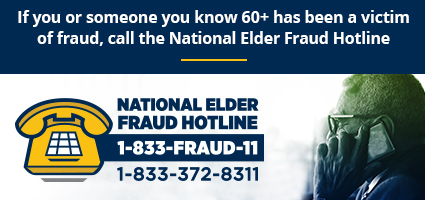Elder abuse is a significant threat to the health and well-being of older adults worldwide.
Defined as an intentional or negligent act that causes harm or serious risk of harm to an older adult, elder abuse can include physical, psychological, and sexual abuse; financial exploitation; and neglect and abandonment.
Every year, June 15 is recognized as World Elder Abuse Awareness Day, an opportunity for communities to raise awareness about elder abuse, neglect, and exploitation.
How Common Is Elder Abuse?
Older adults can be especially vulnerable to financial, physical, and psychological abuse.
The Elder Justice Roadmap, a research initiative funded by the U.S. Department of Justice, indicates that 10% of adults over 60 in the United States experience some form of abuse each year. Studies have also shown that about two-thirds of elder abuse victims are women.
However, the prevalence of elder abuse may be much higher, as the Roadmap’s research suggests that only one out of every 24 cases is reported.
How Do Criminals Target Older Adults?
According to the FBI’s Internet Crime Complaint Center (IC3) 2022 Elder Fraud Report, technology and customer support schemes are the most common type of fraud reported by older victims.
In 2022, victims over 60 reported more losses in call center scams than all other age groups combined, and victims reportedly remortgaged or foreclosed homes, emptied retirement accounts, and borrowed from family and friends to cover their losses.
Many cybercriminals targeting older adults through such scams are based outside the U.S., making this type of elder abuse more difficult to investigate.
Strangers do not just target victims of elder abuse. Family members, friends, and acquaintances can also use their relationships to defraud older Americans.
An analysis by the National Institute of Justice (NIJ) found that 87.5% of older adults who were victims of financial mistreatment by someone they knew did not report the crime to law enforcement. Most victims did not report their family members or friends because they didn’t want the perpetrator to get in trouble or they didn’t want publicity.
How to Prevent and Report Elder Abuse
Rigorous research on the effectiveness of intervention and prevention programs for the abuse of older adults is limited.
One study supported by NIJ found that the EMPOWER Program, a 12-week elder abuse prevention program for community-residing older adults, improved perceptions of home safety, physical health, social support, and financial well-being.
The Office for Victims of Crime (OVC) has several elder fraud and abuse initiatives dedicated to ensuring that older victims of abuse, neglect, and financial exploitation have access to trauma-informed services and resources that protect their safety and confidentiality.
Launched in 2020, the National Elder Fraud Hotline is a free resource created by OVC for people to report fraud against anyone age 60 or older. Callers are assigned a case manager who assists them in reporting the crime and connecting them with necessary resources.
Law Enforcement Response to Elder Abuse
Through the Elder Justice Initiative, the Department of Justice is committed to combatting all forms of elder abuse and financial exploitation through enforcement actions, training and technical assistance resources, research, victim services, and public awareness.
Elder abuse is not an easy problem to address. The cases are often complex, requiring multiple resource systems to respond. Developing a multidisciplinary team (MDT) can be a solution for communities seeking to enhance their response to combat elder abuse and assist victims. Supported by OVC, the National Elder Abuse MDT Training and Technical Assistance Center provides case consultations, training, and technical assistance to MDTs nationwide.
The Bureau of Justice Assistance-sponsored Legal Issues Related to Elder Abuse pocket guide provides law enforcement officers with brief explanations of legal concepts, documents, and tools that may be misused to commit elder abuse. The guide also details issues and actions that justice system professionals may consider if they suspect elder abuse has occurred.
With support from OVC, the National White Collar Crime Center offers free training to support older victims of financial exploitation and fraud. The on-demand training guides professionals through practices to detect, respond to, and assist victims of elder financial exploitation.
More on Elder Abuse from OJP
Visit the following pages for additional information and resources produced or sponsored by the Office of Justice Programs and other federal agencies:
| Elder Abuse Publications | Elder Abuse Training Resources & Tools | Elder Abuse Additional Resources |





